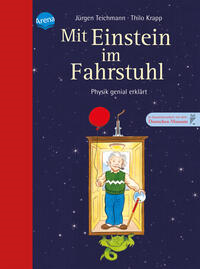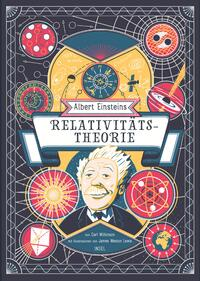Your Search Results
-
Promoted Content
-
Promoted Content
-
 Trusted Partner
Trusted Partner
-
 Trusted Partner
Trusted Partner
-
 Trusted Partner
Trusted Partner
-
 Trusted Partner
Trusted Partner
-
 Trusted Partner
Trusted Partner
-
 Trusted Partner
Trusted Partner
-
 Trusted Partner
Trusted Partner
-
 Trusted Partner
Trusted Partner
-
 Trusted Partner
Trusted Partner
Is the Brain Rational?
The Findings of a Neuropsychologist
by L. Jäncke
This book takes the reader on a fascinating journey, demonstrating in an understandable and entertaining way how the brain affects our thoughts, actions, and feelings - and that this sometimes only peripherally involves reason. It shows, that the subconscious actually exists and how it affects us, how we arrive at both right and wrong decisions, how our memory works, how fragile it can be, and yet also how robust. Using insightful experiments and the latest research results, including many examples, this book presents the reader what an incredibly impressive thinking organ the brain actually is – even if it is not a purely “rational machine”. Target Group: For people interested in the results of research into the workings of the brain in the areas of decision-making, memory, and consciousness.
-
 Trusted Partner
October 2023
Trusted Partner
October 2023Watching the Brain Think
Facets of neuroscience: short thought provoking texts for the curious
by Monika Niehaus/Martin Osterloh
— An exciting and entertaining explanation of neuroscience — In the diverting and humorous style for which the author is known – learning has never been this much fun What processes in the brain are responsible for intelligence, free will, empathy or reason? Can memories be falsified? And what does actually happen in the brain when we reach puberty? Monika Niehaus and Martin Osterloh answer these and many other neuroscientific questions in their book – a fundamental work on brain research, and easy to understand, exciting and entertaining.
-
 Trusted Partner
January 2018
Trusted Partner
January 2018Mit Einstein im Fahrstuhl
Physik genial erklärt:
by Teichmann, Jürgen
Wer sich mit Einstein in einen Fahrstuhl begibt, lernt nicht nur den berühmtesten Physiker aller Zeiten kennen, sondern erlebt auch ungeahnte Abenteuer: Angenommen, das Seil des Fahrstuhls reißt. Dann zeigt eine Waage, auf der beide vielleicht stehen, nichts mehr an! Können sie dann überhaupt wissen, dass sie wirklich nach unten fallen und nicht etwa schwerelos im All schweben?
-
 Trusted Partner
February 2021
Trusted Partner
February 2021Albert Einsteins Relativitätstheorie
Von Carl Wilkinson | Ganzseitige, prächtige Illustrationen in Großformat | Physik verständlich erklärt für Kinder ab 9 Jahre
by Carl Wilkinson, James Weston Lewis, Ebi Naumann
Albert Einstein hat nicht nur die berühmteste Gleichung der Welt erfunden: E = mc2. Er hat auch einige erstaunliche Phänomene rund um Zeit, Raum, Licht und Relativität entdeckt. Dazu gehört, dass Astronauten im Weltraum langsamer altern als Menschen auf der Erde (das berühmte Zwillingsparadoxon). Oder, dass feste Gegenstände bei hoher Geschwindigkeit ihre Form verändern. Dazu verhalf ihm seine Fähigkeit, Autoritäten und allgemein anerkannte Lehrmeinungen der Wissenschaft in Frage zu stellen. »Autoritätsdusel ist der größte Feind der Wahrheit«, schrieb er einmal. Einstein dachte visuell und überlegte sich lustige Experimente. Mit anschaulichen, großformatigen Bildern und verständlichen Erklärungen führt dieses Buch ein in Einsteins faszinierende Gedankenwelt und Entdeckungen, die bis in die heutige Zeit fortwirken: Kernspaltung, Schwerefeld, Ereignishorizont, Higgs-Boson und schwarze Löcher erforschen wir heute auf der Grundlage von Einsteins Erkenntnissen. Er hat die Welt für immer verändert.
-
 Trusted Partner
Trusted Partner
-
 Trusted Partner
Trusted Partner
-
 Trusted Partner
2018
Trusted Partner
2018The Woman Who Thought Her Husband Was a Doppelganger
When the brain goes haywire: 36 rare and unusual psychiatric syndromes
by Monika Niehaus
The human brain is a wondrous thing, highly complex and highly functional. However, the control centre of our feelings, thoughts and actions can sometimes go out of sync. Some reasons for this are known, such as genetic factors, hormonal effects or trauma. In other cases, we are still in the dark. In an extreme case scenario, the brain may create bizarre delusions – masterful narrations that the people affected fi nd completely conclusive and reasonable. Monika Niehaus has compiled 36 such disorders ranging from love madness and the gourmand syndrome – where gourmet food becomes the purpose of life – to people who desire nothing more than to have their limbs amputated. She tells gripping tales of famous and not so famous cases. With sensitivity and a considerable dose of humour she takes us into the history of art and literature, and presents scientifi c explanations. This fascinating book shows that our brain is a genius – and madness is quite often NOT inexplicable.
-
 Trusted Partner
2019
Trusted Partner
2019The Nobel Laureate Who Met a Polite Raccoon in the Woods
When the brain goes mad: 30 rare and unusual mental syndromes
by Monika Niehaus
The human brain is a highly complex and highly functional structure consisting of almost 90 billion nerve cells. But it can go out of sync, due to genetic factors, hormonal effects, trauma or other causes. In extreme cases, our control centre then creates bizarre delusions – brilliant narratives that are completely convincing to the person concerned. In her second book on such phenomena, Monika Niehaus has compiled 30 rare psychological disorders – from a conviction to have been abducted by aliens, to being sexually attracted to criminals, to the hyperthymestical syndrome where people can remember every detail of their past life. Narrated in an interesting, humorous and sensitive way, the author relates a variety of cases, some of them famous, others less so, while introducing us to the history of art and literature and presenting scientific explanations. This fascinating book shows the genius that resides in our brain – and how madness can often be explained.
-
 Trusted Partner
Trusted Partner
-
 Trusted Partner
Trusted Partner



























